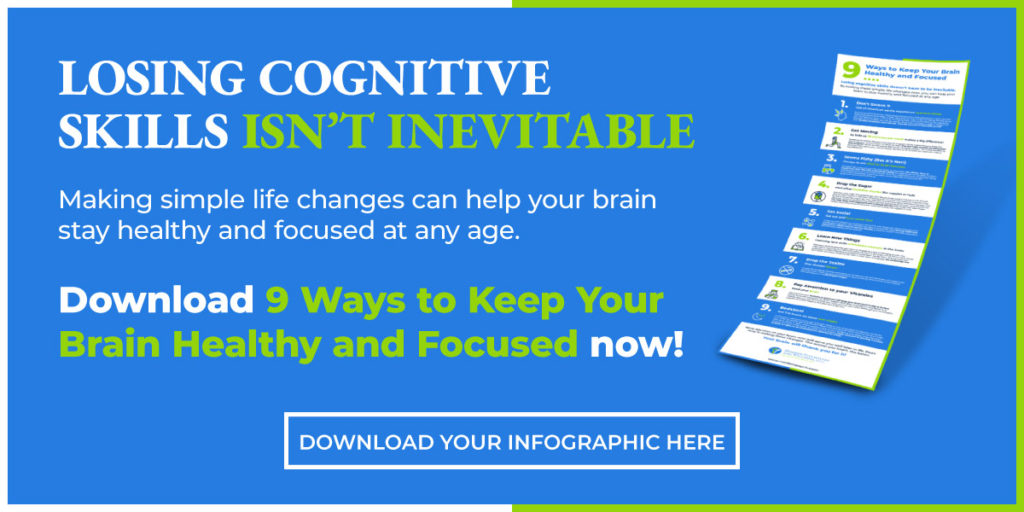Did you know that 40 million adults in the U.S. are affected by anxiety disorders? That’s 18.1% of the adult population. Additionally, 25.1% of children between 13 and 18 years old are affected by some form of anxiety disorder. Anxiety disorders are the most common form of mental illness in the U.S. With anxiety affecting such a large portion of the population there is a good chance that you or someone you know has anxiety. One of the symptoms that someone with anxiety may experience is an anxiety attack. The best way to treat anxiety attacks is to know the symptoms and ways to help the person treat the attack. Here are some of the symptoms that a person may experience during and before an anxiety attack.
Learn to Overcome Your Fears and Worry with our eBook
Common Symptoms of an Anxiety Attack
Symptoms will vary from person to person, but here are some of the common signs to look out for:
- Feeling nervous, restless, or tense
- Sense of impending danger, panic, or doom
- Increased heart rate
- Chest pain
- Hyperventilation/rapid breathing
- Sweating
- Chills or hot flashes
- Dry mouth
- Trembling or shaking
- Numbness
- Feeling weak, tired, or dizzy
- Trouble concentrating
- Trouble sleeping
- Upset stomach, stomach pain, and nausea
- Difficulty controlling worry
- Avoiding things that trigger anxiety
- Irritability
Possible Triggers
Just like with the symptoms of an anxiety attack, the causes or triggers of an anxiety attack will vary from person to person. Here are just some of the many common causes of anxiety attacks:
- Stressful jobs or situations
- Social situations
- Phobias
- Reminders of traumatic experiences
- Withdrawal from drugs or alcohol
- Caffeine
- Driving
- Medical conditions
- Thyroid problems
- Chronic illnesses like heart disease, IBS, or diabetes
- Medications or supplements
- Withdrawal from medications
- Family history of anxiety disorders

Panic Attack vs Anxiety Attack
In many cases anxiety attacks are mistaken as panic attacks. This can make diagnosing and treating anxiety attacks difficult. Here are some of the key differences between anxiety attacks and panic attacks.
Panic attacks have some similar symptoms to anxiety attacks but there are a few symptoms that are different. Symptoms tend to also be more severe with panic attacks.
- Fear of dying or losing control
- Sense of detachment from the world or oneself
Panic attacks can also occur without a trigger or any warning while an anxiety attack will almost always have a trigger. Panic attacks are sudden and can last anywhere between a few minutes and an hour. Anxiety attacks on the other hand develop gradually and continue for an extended period of time depending on the severity. Panic attacks are a diagnosable disorder according to the DSM-V and are listed as a symptom of panic disorder. Anxiety attacks are not a diagnosable disorder according to the DSM-V.
How to Help
Anxiety attacks are scary and frustrating for those experiencing them and for those around them. If you are experiencing an anxiety attack here are a few steps to help ease the symptoms:
- Deep breathing
- Meditation
- Find support
- Get some sleep
- Talk with a therapist
You can practice these steps even when you are not experiencing an anxiety attack to help prevent future attacks.
If someone you know is experiencing an anxiety attack, there are several steps that you can take to help.
- Don’t enable by trying to eliminate the causes
- Don’t force confrontation with the causes
- Provide validation
- Express concern
Anxiety affects millions of Americans every year. Not everyone who struggles with an anxiety disorder will experience an anxiety attack but recognizing the symptoms can help you treat and even prevent an anxiety attack from happening to you or someone you love. If you are seeking treatment for your anxiety disorder, contact Modern Psychiatry and Wellness today to schedule a consultation.


